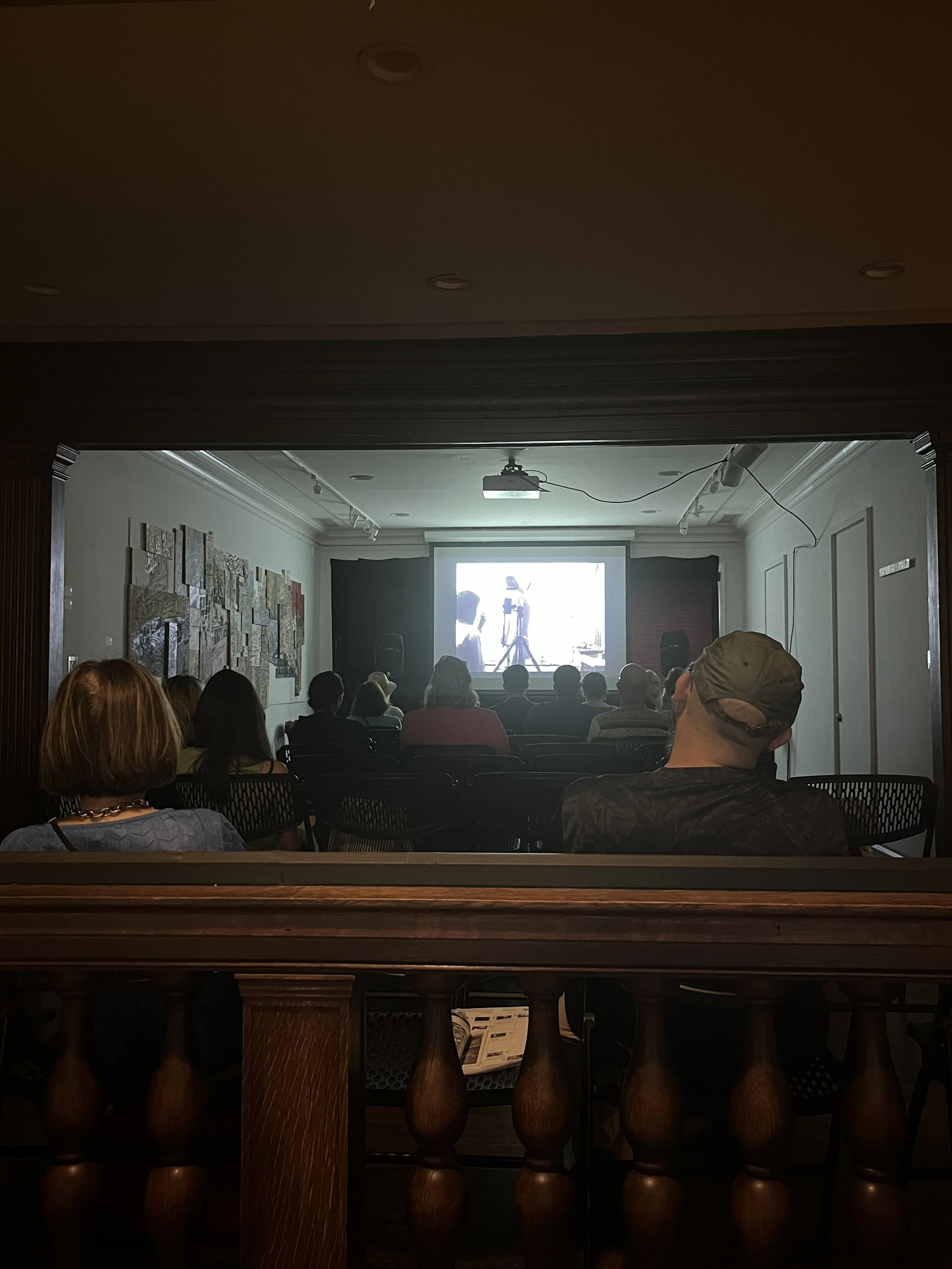Films & Yasunao Tone:
composer, Filmmaker, and Performer
Still from: Yasunao Tone, 2,880K=120”, 1964.
In this special screening within the Community of Images exhibition with artist and musician Yasunao Tone, curator Go Hirasawa discussed Tone’s film and film scores. Yasunao Tone will be at the screening.
PROGRAM
Yasunao Tone, 2,880K=120", 1964, 3 min, 16mm film transferred to digital, b/w
Masao Adachi, Galaxy, 1967, 75 min, 16mm film transferred to digital, color and b/w
Motoharu Jōnouchi, Shelter Plan, 1964, 25 min, 16mm film transferred to digital, b/w
Yasunao Tone (b.1935, Tokyo) began his career in Tokyo as a member of Group Ongaku along with Takehisa Kosugi, Mieko Shiomi and others. Tone was also involved with the Japanese avant-garde art collectives Neo-Dada Organizers and Hi-Red Center, and is counted among the members of Fluxus group. Tone moved to New York permanently in 1972, and became part of Fluxus NY, Downtown improvisers, and the European electronica experimentalists.
As part of one-time event A Commercial for Myself (December 16–17, 1964) for Film Indépendent, a group for producing and screening independent and experimental films, Yasunao Tone made the film 2,880K=120". Tone contributed his film score for Masao Adachi’s Galaxy, a film considered the first feature-length experimental film to be produced in post-war Japan. Tone is featured, along with Nam June Paik, Yoko Ono, and others in Shelter Plan by Motoharu Jōnouchi who was part of the Van Film Science Research Center. The film is a document of an infamous Shelter Plan organized by Hi Red Center in a room at the Imperial Hotel.
This program is co-presented by Collaborative Cataloging Japan and the Japan America Society of Greater Philadelphia in partnership with Lightbox Film Center at the University of the Arts. Major support for the Community of Images exhibition has been provided by The Pew Center for Arts & Heritage, with additional support from the Andy Warhol Foundation, the Toshiba International Foundation, Pola Art Foundation, and the Pennsylvania Council on the Arts.
Yasunao Tone (b.1935, Tokyo) began his career in Tokyo as a member of Group Ongaku along with Takehisa Kosugi, Mieko Shiomi and others. His improvisational, disruptive praxis extended to performing from a van during the protests against the US-Japan Security Treaty in 1960. Tone was also involved with the Japanese performance groups Neo-Dada Organizers and Hi-Red Center, and is counted among the members of Fluxus: his graphic score Anagram for Strings was published by George Maciunas in 1963 and he later helped to found the Japanese branch of the group. Tone moved to New York permanently in 1972, where he worked extensively with the Merce Cunningham Dance Company, and performed at venues including the Kitchen, the Experimental Intermedia Foundation, and P.S.1. His hybrid works for Cunningham such as Clockwork Video (1974) and Geography and Music (1979-1987), combined sound, text, video and installations integrated into events and performances.
Related References from Past Events
Community of Images: Japanese Moving Image Artists in the US, 1960s - 1970s
Community of Images: Japanese Moving Image Artists in the US, 1960s-1970s will be an exhibition of experimental moving images created by Japanese artists in the U.S. during the 1960s and 70s, an area that has fallen in the fissure between American and Japanese archival priorities.
This project is co-presented by Collaborative Cataloging Japan and the Japan America Society of Greater Philadelphia in partnership with Philadelphia Art Alliance at University of the Arts. Major support has been provided by The Pew Center for Arts & Heritage, with additional support from the Andy Warhol Foundation, the Toshiba International Foundation, Pola Art Foundation, and the Pennsylvania Council on the Arts.








CCJ is pleased to partner with Lightbox Film Center to present two screening programs in association with its research thread, the Japanese Expanded Cinema Project. Program One presents CCJ's first Preservation Project of works by Rikuro Miyai, and will be a US premiere presentation of Shadow in 2-channel 16mm projection.